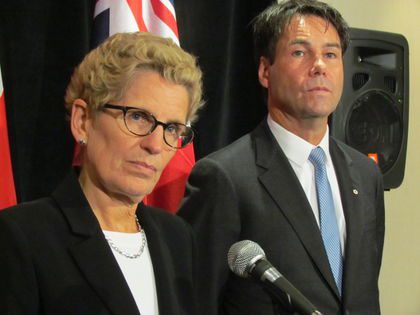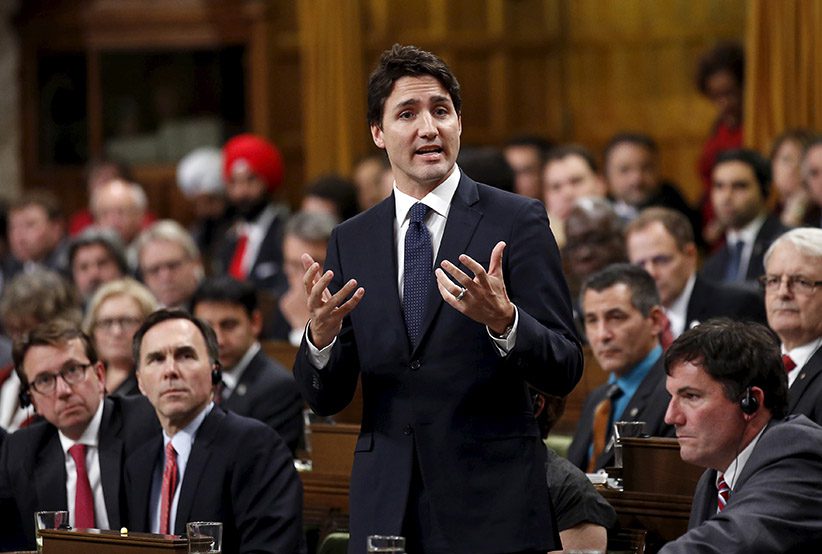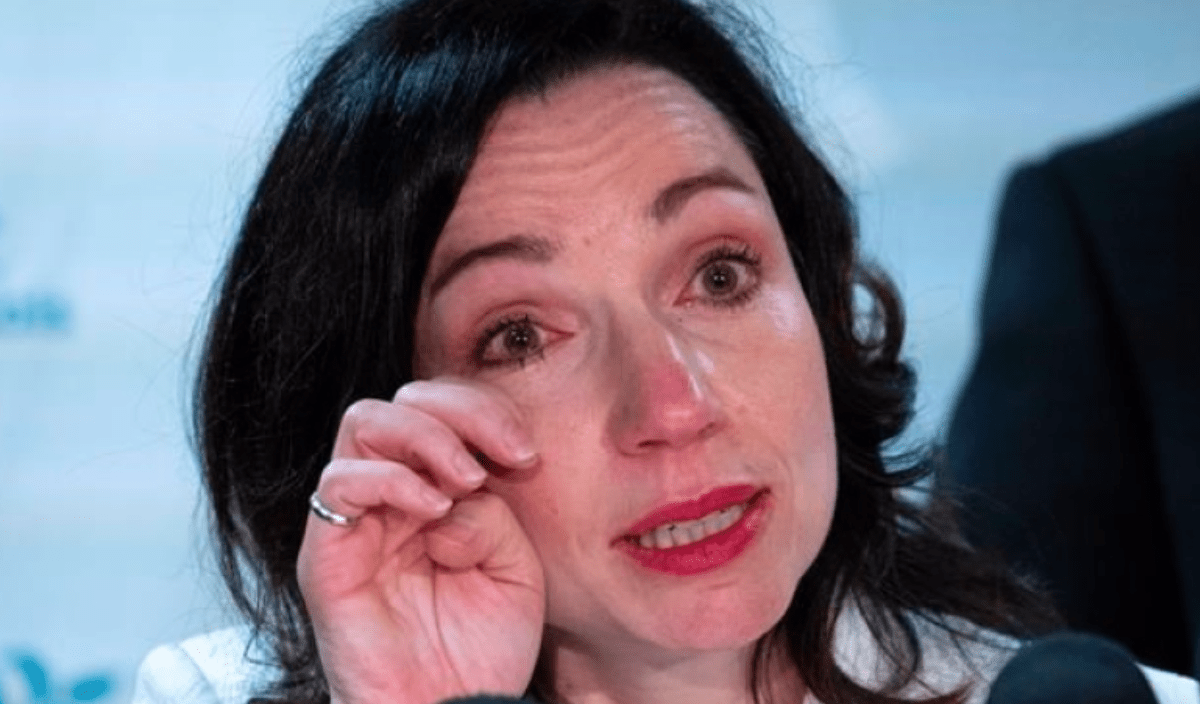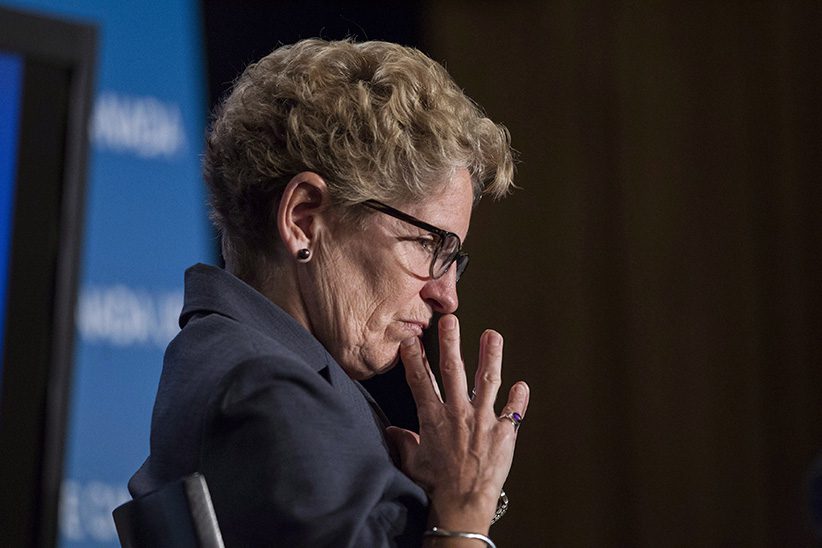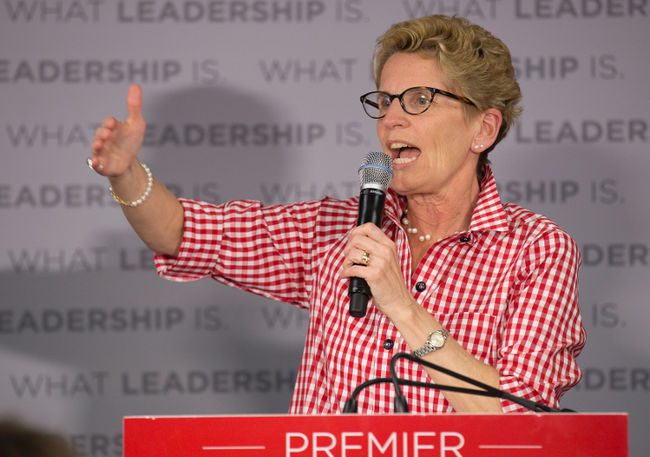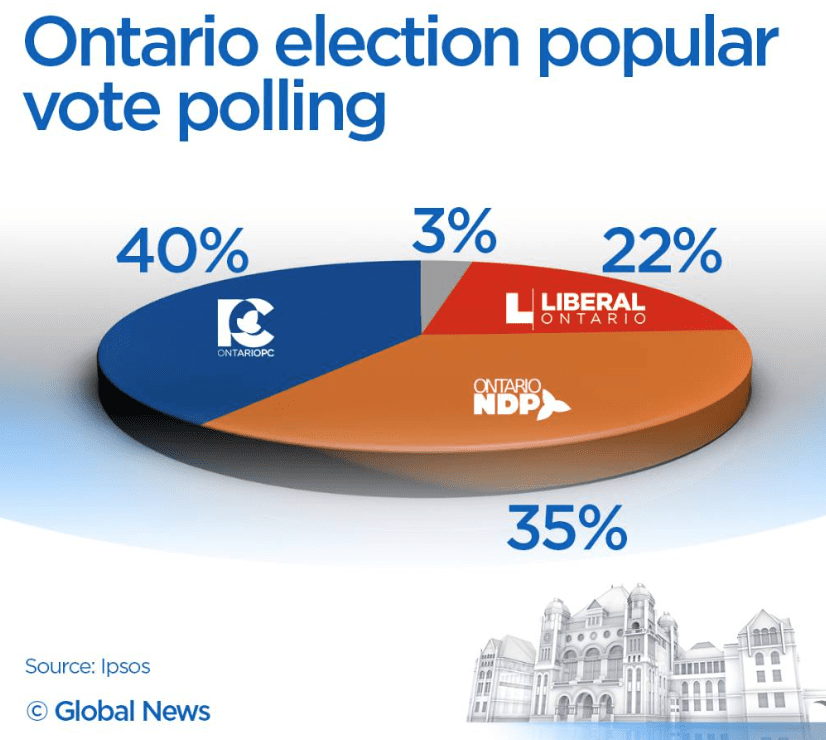To be honest, I never felt all that comfortable attacking Kathleen Wynne.
It wasn't that she didn't deserve it, because she certainly did. It was more that she was so consumed by insecurity, by fear of being attacked and a need to be liked that I kind of felt sorry for her.
It infected everything she did as Premier, from the cynical and abrupt way she yanked the province's finances from balanced budget to deficit spending on a whim, to the cry-bullying approach to prosecuting the cases against Sandra Pupatello, Tim Hudak, and the 2014 iteration of Andrea Horwath, respectively, to the needless attacks on the founder of Tim Horton's and attempts to suppress documentaries (that of course she denied ever happened) that were at best mildly critical, and finally, her shameless #sorrynotsorry method of dismissing those who had legitimate criticisms of the way she governed.
She didn't need to poach Glenn Thibeault in Sudbury, or promise high speed rail to Windsor, or try to make the case that the hapless Patrick Brown was Donald Trump, or say that her party putting beer and wine in supermarkets was balanced but putting the same substances in corner stores was reckless and risky, but she did all these things and more anyway.
This was a politician who showed us that it was OK to be a female Premier who was married to a woman. She did it all, from popular school board trustee, to the well-liked Minister of Education who defeated John Tory in 2007, to underdog and ultimately successful leadership candidate, to activist leader who restored her party's majority status after Dalton McGuinty lost it. She is a legitimate hero to many after all of it.
And yet, of course, it wasn't enough. Having decisively earned the right to tell her haters to go pound sand many times over, she continued to govern as though every Facebook account sharing memes comparing her to Orville Redenbacher and every "Kathleen Lose" tweet had the potential to be her undoing. "There are certain people in the press gallery who I just know are out to get me," she whined at one point, oblivious to the fact that she was the most powerful First Minister in Confederation.
While I wouldn't begrudge anyone the experience of being pecked to death by the full-day-kindergarten class that is Ontario's press corps, or being subjected to daily homophobia and sexism, it still begs the question of whether Wynne went into public life with the intention of being loved, or to make a difference.
Did she forget that this is the same province that threw the much-beloved Bill Davis out of office for funding Catholic schools? Did she imagine that providing free prescriptions to kids under 25 or free tuition would whet the public's voracious appetite for entitlements?
Sadly, her early concession speech after months of ignoring the very clear signs that she was going to get utterly creamed and blow up her own party if she stayed on as Premier gave us all the answers we would need, by giving us, and her party, none of the answers they needed. At once, she torpedoed any hope for a progressive coalition, inadvertently signaled to many supporters that there was no point in voting Liberal since she was going to lose, and confused those who had hoped to vote strategically. A baffling, self-destructive, and utterly vindictive gesture.
You could, of course, conclude that this kind of behaviour has something to do with why Kathleen Wynne is disliked. But that of course would be blaming the victim, which is what the soon-to-be-ex-Premier so clearly believes that she is.
Well, let her resign herself, then, to her endless victimhood, and let those who believe that Ontarians have done her a bad turn, instead of the other way around, persist in their beliefs, far away from the rest of us. Her successor may victimize the province further, but at least Doug Ford and Andrea Horwath have proven this election cycle that they can handle being disliked by the voters, and that, after all, may be the crucial overlooked reason why those same voters will trust them with the majority of the seats and their votes.
Written by Josh Leiblein



